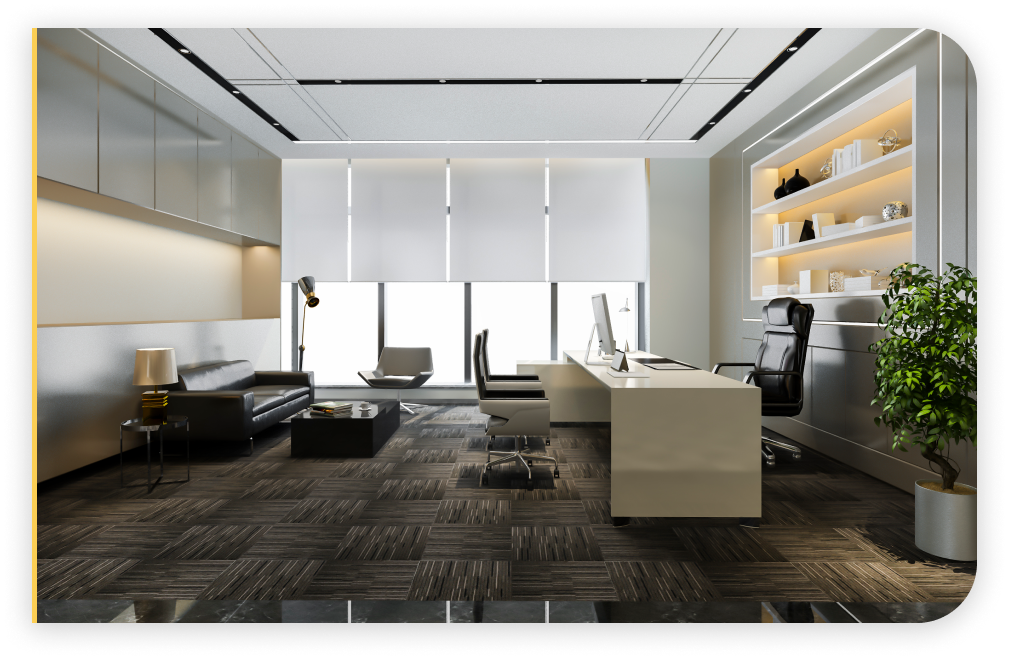September 19, 2023
With ever-evolving technology and the advent of drywall, builders and property owners often find themselves in a dilemma when it comes to constructing office spaces. Should they opt for traditional construction methods or embrace the efficiency of drywall systems? Both approaches have their pros and cons. In this blog, we will delve into the comparison between drywall and traditional construction to help you make an informed decision for your office projects.
DRYWALL CONSTRUCTION:
SPEED AND EFFICIENCY:
One of the primary benefits of drywall construction is its speed and efficiency. Drywall panels are pre-fabricated and can be quickly installed, significantly reducing construction time. In today’s fast-paced business environment, time-saving construction methods are highly advantageous.
COST-EFFECTIVENESS:
Drywall construction often proves to be more cost-effective than traditional methods. The reduced labour requirements, shorter construction timelines, and lower material costs make it an attractive option for those looking to optimize their budgets.
DESIGN FLEXIBILITY:
Drywall offers tremendous scope for experimenting with designs. It can be easily customized to meet specific aesthetic and functional requirements, making it suitable for creating modern, sleek office spaces, which often prioritize contemporary design elements.
SOUNDPROOFING:
In bustling urban cities, soundproofing is essential. Drywall systems can incorporate acoustic insulation materials to ensure a quieter and more productive work environment, a feature highly appreciated in office settings.
SUSTAINABILITY:
The UAE has been actively promoting sustainability in construction. Drywall construction aligns with this goal as it generates less waste, uses fewer resources, and can incorporate eco-friendly materials, contributing to a greener building industry.
TRADITIONAL CONSTRUCTION:
DURABILITY:
Traditional construction methods, often involving concrete and brick, are renowned for their durability. This longevity can be a significant advantage, especially for offices seeking long-term stability and minimal maintenance costs.
THERMAL INSULATION:
In the UAE’s extreme climate, thermal insulation is crucial. Traditional construction materials like concrete offer excellent thermal mass, helping maintain a comfortable indoor temperature, which is essential for productivity.
CUSTOMIZATION:
While drywall offers design flexibility, traditional construction allows for greater structural customization. This can be advantageous when designing unique and large-scale office spaces.
FIRE RESISTANCE:
Traditional construction materials like concrete and brick inherently possess better fire resistance properties compared to drywall. In the UAE, where fire safety regulations are stringent, this can be a significant consideration.
Cultural Sensitivity:
Traditional construction may be preferred in projects where preserving cultural heritage and architectural aesthetics is a priority, as it can more authentically replicate traditional Emirati design elements.
CONCLUSION
As both drywall construction and traditional construction have their benefits, the choice ultimately depends on your specific requirements and budget. If speed, cost-efficiency, and design flexibility are the priorities, drywall construction is an excellent choice. On the other hand, traditional construction offers durability, thermal insulation, and a more authentic approach, making it suitable for certain projects. For the best results, a hybrid construction—combining both methods—can offer the perfect solution.
Analyse both options, list your performance expectations, needs, wants, budget, and vision, and make a well-informed decision.
September 19, 2023
Drywall Or Traditional Construction – The Ideal Choice For Office Spaces
With ever-evolving technology and the advent of drywall, builders and property owners often find themselves in a dilemma when it comes to constructing office spaces. Should they opt for traditional construction methods or embrace the efficiency of drywall systems? Both approaches have their pros and cons. In this blog, we will delve into the comparison between drywall and traditional construction to help you make an informed decision for your office projects.
DRYWALL CONSTRUCTION:
SPEED AND EFFICIENCY
One of the primary benefits of drywall construction is its speed and efficiency. Drywall panels are pre-fabricated and can be quickly installed, significantly reducing construction time. In today’s fast-paced business environment, time-saving construction methods are highly advantageous.
COST-EFFECTIVENESS:
Drywall construction often proves to be more cost-effective than traditional methods. The reduced labour requirements, shorter construction timelines, and lower material costs make it an attractive option for those looking to optimize their budgets.
DESIGN FLEXIBILITY:
Drywall offers tremendous scope for experimenting with designs. It can be easily customized to meet specific aesthetic and functional requirements, making it suitable for creating modern, sleek office spaces, which often prioritize contemporary design elements.
SOUNDPROOFING:
In bustling urban cities, soundproofing is essential. Drywall systems can incorporate acoustic insulation materials to ensure a quieter and more productive work environment, a feature highly appreciated in office settings.
SUSTAINABILITY:
The UAE has been actively promoting sustainability in construction. Drywall construction aligns with this goal as it generates less waste, uses fewer resources, and can incorporate eco-friendly materials, contributing to a greener building industry.
TRADITIONAL CONSTRUCTION:
DURABILITY:
Traditional construction methods, often involving concrete and brick, are renowned for their durability. This longevity can be a significant advantage, especially for offices seeking long-term stability and minimal maintenance costs.
THERMAL INSULATION:
In the UAE’s extreme climate, thermal insulation is crucial. Traditional construction materials like concrete offer excellent thermal mass, helping maintain a comfortable indoor temperature, which is essential for productivity.
CUSTOMIZATION:
While drywall offers design flexibility, traditional construction allows for greater structural customization. This can be advantageous when designing unique and large-scale office spaces.
FIRE RESISTANCE:
Traditional construction materials like concrete and brick inherently possess better fire resistance properties compared to drywall. In the UAE, where fire safety regulations are stringent, this can be a significant consideration.
CULTURAL SENSITIVITY:
Traditional construction may be preferred in projects where preserving cultural heritage and architectural aesthetics is a priority, as it can more authentically replicate traditional Emirati design elements.
CONCLUSION
As both drywall construction and traditional construction have their benefits, the choice ultimately depends on your specific requirements and budget. If speed, cost-efficiency, and design flexibility are the priorities, drywall construction is an excellent choice. On the other hand, traditional construction offers durability, thermal insulation, and a more authentic approach, making it suitable for certain projects. For the best results, a hybrid construction—combining both methods—can offer the perfect solution.
Analyse both options, list your performance expectations, needs, wants, budget, and vision, and make a well-informed decision.
